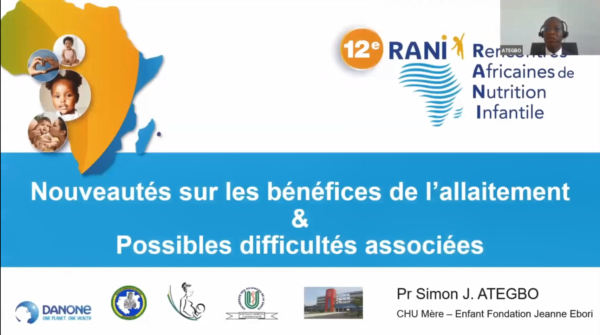Breastfeeding is considered to be an ancient art and a modern miracle due to the complexity of its components which confers benefits to mothers and infant health.
There has been a steady growth on scientific knowledge on milk compositions from macronutrients, vitamins and minerals to bioactive elements which are essential for the nutritional management of new-born infants. Human breastmilk is known to adapt based on the infant’s specific needs1 and contains human milk oligosaccharides (HMOs) that shape the infant microbiota and support overall health.
The World Health Organization (WHO) recommends exclusive breastfeeding ((i.e. the infant should only take breastmilk and no other food or drink, not even water) for the first 6 months of life and continue up to 2 years and beyond with gradual introduction of safe and suitable complementary feeding (WHO, 2021) 2. The practice of exclusive breastfeeding, however, remains low in Africa where only 20% of infants are exclusively breastfed in most countries.
When exclusive breastfeeding cannot be achieved, the Codex Alimentarius regulates the composition of infant formulae, considered as the only suitable substitutes to breastmilk. Regular cow’s milk, a commonly used yet unsuitable substitute for breastmilk, has a composition which is not adapted for infant’s nutritional needs.
The early substitution of breastmilk with cow’s milk, but also fruit juices, sugar and water mixture, and the early introduction of dietary diversification/complementary food remains a problem in Africa. These inappropriate practices are associated with various factors such as local beliefs and attitudes, unavailability of the mother, parents’ level of education, misinformation, economic issues, and the lack of support from health care professionals and family members.
Listen to the conference « New findings on the benefits of breastfeeding & the possible associated difficulties» hosted during the 12th edition of RANI (African meeting of Infant Nutrition) the 11th of November 2021.
Speaker : Pr. Simon J. ATEGBO, CHU Mère – Enfant Fondation Jeanne Ebori, GABON.
Click here to watch this video

References
- Bauer, J., & Gerss, J. (2011). Longitudinal analysis of macronutrients and minerals in human milk produced by mothers of preterm infants. Clinical Nutrition (Edinburgh, Scotland), 30(2), 215–220.
- (2021). Allaitement. https://www.who.int/fr/health-topics/breastfeeding#tab=tab_1
BA22-087
